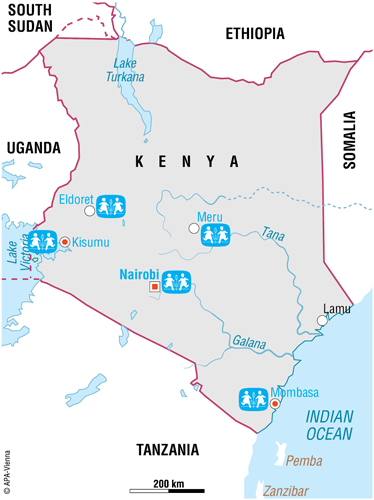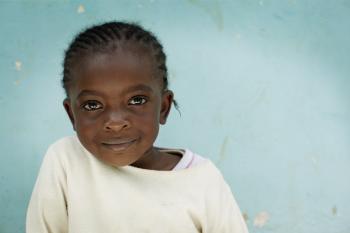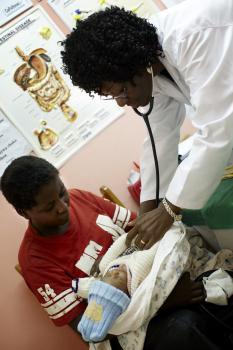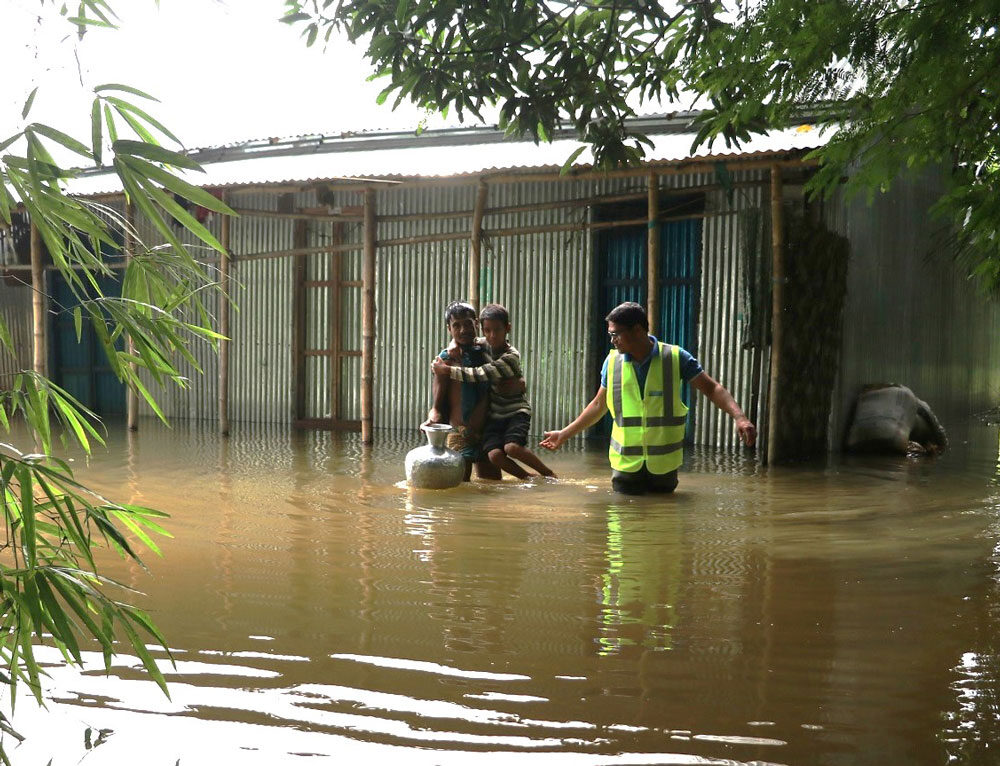
Vi er i Kenya
A diverse nation

The Republic of Kenya’s population is 44 million and its capital is Nairobi. The country has been referred to as "the cradle of humanity" since scientists discovered some of the earliest evidence of man's ancestors on Kenyan soil. Its impressive ethnic diversity is an important element of Kenyan culture, on one hand, and a source of conflict on the other. Violence between tribes has contributed to internal displacement in the country.
Pressing challenges in present-day Kenya include high unemployment, crippling poverty and high crime rates. The tourism industry has been an important source of income and has become the country's primary hard currency earner over recent years. Abundant wildlife and scenic landscapes make Kenya a major safari destination that attracts thousands of foreign visitors every year.
Frequent droughts drive millions into starvation
Although Kenya has recently seen economic growth, around 11 million people are still undernourished and a major part of the country's population is unable to meet their daily calorie requirements. Floods and droughts continue to have a severe impact on the availability of food, particularly in semi-nomadic zones. In the drought-prone north, access to medical services is poor and many families cannot meet even the most basic needs such as running water, sewage systems and sanitation. Around 50 per cent of the Kenyan population face a life in poverty, with a substantial part living in conditions of extreme poverty.
In 2008, a wave of post-electoral violence hit Kenya. The crisis led to over 1,000 deaths and massive displacement. Hundreds of thousands were forced to flee their homes and 75,000 children had to take shelter in over 100 camps for internally displaced persons. Life expectancy at birth is only 55 years. Apart from the HIV/AIDS pandemic that dramatically affects Kenya, widespread infectious diseases in the country include typhoid, hepatitis A and bacterial diarrhoea.
Many children are at risk

Kenya ratified the African Charter on the Rights and Welfare of the Child (ACRWC) and various conventions, but some issues remain unresolved, such as clear guidelines regarding corporal punishment or the minimum age for marriage and criminal responsibility. Thousands of children in Kenya are deeply affected by persistently high levels of poverty. The well-being of young children is particularly at risk as undernourishment and child mortality have increased. A growing number of children live without parental care or at the brink of losing it. At 6.3 per cent, Kenya also has one of the highest HIV prevalence rates in the entire world. Nearly 1,200,000 children in Kenya aged 0 to 17 have been orphaned as a direct result of AIDS.
Another public health concern for young children in Kenya continues to be malaria, which kills around 26,000 children under the age of five every year. Child mortality is high at 84 per 1,000 live births. An increasingly high number of households in Kenya are headed by children. Female-headed households and child-headed households are more likely to experience high levels of poverty. Young children are often obliged to work instead of being able to go to school as they have to put food on the table for an entire family. In Kenya, an estimated 130,000 children live in the streets as a result of poverty, family neglect and social discrimination. Many of them are forced into exploitative child labour and eventually even commercial sex work. At present, an estimated 10,000 children have been caught up in the sex trade, particularly in the country's coastal regions. Many children resort to prostitution as a way to make a living.
SOS Children's Villages in Kenya
Kenya was one of the first African countries where SOS Children's Villages became active. The national Kenyan association was founded in 1971, primarily because of the ever-increasing number of orphaned and neglected children in Kenya. SOS Children's Villages has been running SOS Family Strengthening Programmes in the country, which enable children who are at risk of losing family care to grow up within a caring family environment. To achieve this, the organisation works together with families and communities, empowering them to effectively protect and care for their children. At present, we are supporting Kenyan children and young people by providing day-care, education, vocational training and medical services in five different locations. Children whose families cannot take care of them can find a loving home in one of the SOS families.

